Revolutionary Laser Technology: How Modern Cavity Detection is Transforming Dental Care in Marietta

Gone are the days when dentists relied solely on metal probes and visual inspections to detect tooth decay. Today’s dental practices in Marietta are embracing cutting-edge laser cavity detection technology that identifies problems before they become painful, expensive emergencies. This advanced diagnostic tool represents a significant leap forward in preventive dentistry, offering unprecedented accuracy and patient comfort.
Traditional cavity detection methods often miss early-stage decay hidden beneath seemingly healthy tooth surfaces. By the time decay becomes visible to the naked eye or shows up on X-rays, it has typically progressed significantly. Laser cavity detection changes this paradigm entirely, allowing dental professionals to identify the earliest signs of demineralization and intervene before cavities fully develop.
Understanding the Science Behind Laser Cavity Detection
Laser cavity detection utilizes fluorescence technology to measure the health of tooth structure at the molecular level. When a safe, painless laser light penetrates tooth enamel, healthy tooth structure fluoresces differently than areas affected by decay or demineralization. The device measures these fluorescence variations and converts them into numerical readings that indicate the presence and severity of potential problems.
This technology works by detecting changes in tooth density and mineral content that occur during the earliest stages of the decay process. Unlike traditional methods that require visible holes or significant structural damage to identify cavities, laser detection can pinpoint problem areas when they’re still microscopic. This early intervention capability allows for conservative treatment approaches that preserve more natural tooth structure.
The laser wavelength used in cavity detection is specifically calibrated to interact with tooth minerals without causing any damage or discomfort. Patients experience no sensation during the scanning process, making it an ideal diagnostic tool for individuals with dental anxiety or sensitivity concerns.
Advantages of Laser Technology Over Traditional Detection Methods
- Accuracy: Laser cavity detection boasts significantly higher accuracy rates compared to traditional visual and tactile examination methods. Studies indicate that conventional detection methods can miss up to 50% of cavities in their early stages, while laser technology achieves detection rates exceeding 90% for incipient lesions.
- Early Intervention: By identifying decay at the molecular level before it becomes structurally apparent, laser detection enables preventive treatments that can actually reverse early-stage demineralization through remineralization therapies and improved oral hygiene protocols.
- Comfort: The completely painless, non-invasive nature of laser scanning eliminates patient discomfort associated with traditional probing methods. No sharp instruments contact the teeth, reducing anxiety and making the diagnostic process more pleasant.
- Comprehensive Coverage: Laser detection can assess areas that are difficult to examine visually, including spaces between teeth, groove patterns, and areas beneath existing restorations where secondary decay commonly develops.
- Objective Measurements: Unlike subjective visual assessments, laser detection provides quantifiable numerical readings that can be tracked over time to monitor changes in tooth health and treatment effectiveness.
- Speed: The scanning process takes only seconds per tooth, making comprehensive oral examinations more efficient without sacrificing thoroughness.
What Patients Can Expect During Laser Cavity Detection
The laser cavity detection process is remarkably straightforward and comfortable for patients. During your regular checkup, your dental professional will use a small, pen-like device that emits a safe laser light. This device is gently placed near each tooth surface while measurements are taken and recorded.
You’ll hear subtle beeping sounds that indicate the device is taking readings, but you won’t feel any sensations or discomfort. The entire mouth can typically be scanned in just a few minutes, adding minimal time to your regular examination. Real-time results appear on a digital display, allowing your dentist to immediately discuss findings and treatment recommendations.
The numerical readings help create a baseline for your oral health that can be compared during future visits. This tracking capability enables your dental team to monitor subtle changes over time and adjust prevention strategies accordingly.
Treatment Options When Early Decay is Detected
When laser cavity detection identifies early-stage demineralization, several conservative treatment options become available that wouldn’t be possible with late-stage detection:
- Remineralization Therapy: Professional fluoride treatments and prescription toothpastes can actually reverse early decay by encouraging mineral replacement in affected areas.
- Dietary Counseling: Identifying specific foods and beverages that contribute to acid production allows for targeted dietary modifications that support oral health.
- Enhanced Home Care: Customized oral hygiene protocols, including specialized toothpastes and mouth rinses, can be recommended based on individual risk factors and detected problem areas.
- Sealant Application: Protective sealants can be applied to vulnerable areas identified through laser scanning, preventing future decay development.
- Minimally Invasive Fillings: When intervention is necessary, early detection allows for smaller, more conservative restorations that preserve maximum natural tooth structure.
The Role of Laser Detection in Comprehensive Preventive Care
Modern dental care in Marietta emphasizes prevention over treatment, and laser cavity detection plays a crucial role in this philosophy. By identifying problems at their earliest stages, this technology enables a truly preventive approach that can maintain natural teeth for a lifetime.
Regular laser scanning allows dental professionals to track changes in oral health over time, identifying patterns and risk factors that might not be apparent through other diagnostic methods. This information helps create personalized prevention plans that address individual patient needs and lifestyle factors.
The technology also supports patient education by providing concrete, measurable data about oral health status. When patients can see numerical readings and understand how their daily habits affect these measurements, they become more motivated to maintain excellent oral hygiene and make lifestyle changes that support dental health.
Frequently Asked Questions About Laser Cavity Detection
- Is laser cavity detection safe? Yes, the laser wavelengths used for cavity detection are completely safe and approved by the FDA. The light energy is far below levels that could cause any tissue damage or discomfort.
- How often should laser scanning be performed? Most dental professionals recommend laser cavity detection during regular checkups, typically every six months, though frequency may vary based on individual risk factors and oral health status.
- Does insurance cover laser cavity detection? Many dental insurance plans cover laser cavity detection as part of routine diagnostic procedures, though coverage varies by plan and provider.
- Can laser detection find cavities that X-rays miss? Yes, laser technology can identify early-stage decay that hasn’t yet created the structural changes visible on radiographs, making it an excellent complement to traditional imaging methods.
- What happens if decay is detected? Treatment recommendations depend on the stage of decay detected. Early-stage demineralization may be addressed through remineralization therapy, while more advanced decay might require conservative restoration.
Experience the future of dental diagnostics with advanced laser cavity detection technology. Dr. Wayne Suway and his team in Marietta utilize the latest diagnostic tools to ensure comprehensive, comfortable care that keeps your smile healthy for years to come. Schedule your next checkup to discover how modern technology can transform your dental experience.
Posted on behalf of
1820 The Exchange SE, #600
Atlanta, GA 30339
Phone: (770) 953-1752
FAX: (770) 953-6470
Mon - Thu: 8:30 AM – 5:30 PMClosed for lunch: 12:30 PM - 1:30 PM









